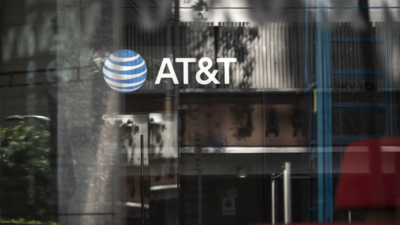ARTICLE AD BOX

AT&T CEO
John Stankey
delivered a blunt ultimatum to employees resisting the company's return-to-office mandate and cultural transformation, telling workers who can't align with new priorities to find jobs elsewhere. In a lengthy memo to managers obtained by Business Insider,
Stankey
addressed declining
employee engagement scores
following the telecom giant's shift from hybrid work to a five-day in-office requirement."If you are of the small minority that shared comments similar to, 'I have heard this nonsense before and I'll ignore things until this goes away…' or 'things were just fine the way they were…' there might be a disconnect between you and your current professional choice," Stankey wrote in the Friday memo addressing over 99,000 survey respondents.The CEO's message comes seven months after AT&T implemented its strict office mandate, abandoning the hybrid schedule many employees preferred. Survey results showed 79% of respondents feel committed to their work, but overall engagement scores declined from 2023 levels.
AT&T Return-to-Office policy sparks employee pushback
"If a self-directed, virtual, or hybrid work schedule is essential for you to manage your career aspirations and life challenges, you will have a difficult time aligning your priorities with those of the company and the culture we aim to establish," Stankey stated, making clear that remote work flexibility is no longer compatible with AT&T's vision.The mandate has created practical challenges, with some employees reporting difficulties securing office desks and parking spaces. Competitor Verizon has capitalized on the situation, actively recruiting disgruntled AT&T workers who prefer hybrid arrangements.
CEO’s cultural transformation aims to shift from 'loyalty and tenure' to market-based performance
Stankey framed the changes as part of a broader cultural overhaul moving away from traditional corporate values. "We have consciously shifted away from some of these elements and towards a more market-based culture — focused on rewarding capability, contribution, and commitment," he explained, referencing the company's departure from "loyalty, tenure, and conformance with the associated compensation."The CEO invoked military leadership wisdom to justify the disruption: "As General
Eric Shinseki
so eloquently stated, 'If you dislike change, you're going to dislike irrelevance even more.'""When I read comments lamenting disruption, I tried to pick my brain for an example of another 100+ year old company that didn't have to disrupt itself to secure sustainable relevance. I am still searching for the first example," Stankey noted, defending the transformation as essential for the 150-year-old company's survival.



.png)
.png)
.png)
















 2 hours ago
3
2 hours ago
3









 English (US) ·
English (US) ·